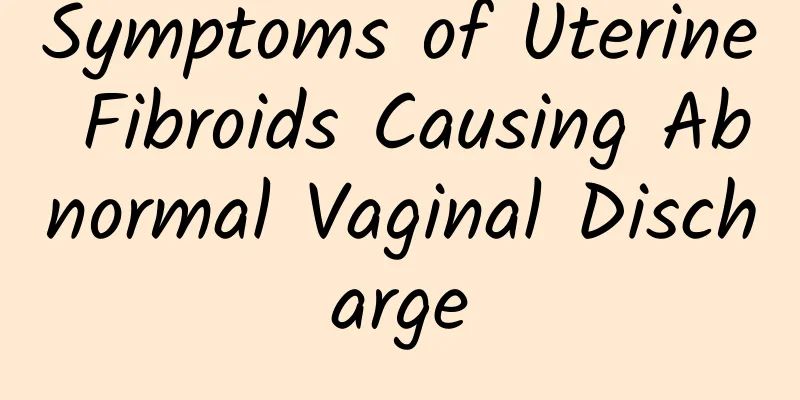Can functional uterine bleeding lead to infertility?

|
Dysfunctional uterine bleeding may lead to infertility, especially when the condition is not effectively controlled for a long time. Its impact mainly comes from the abnormality of the endometrium and the interference of hormonal disorders on ovulation. Early intervention and regular treatment can effectively improve fertility, so it is very important to seek medical treatment in time. Dysfunctional uterine bleeding (DUB) is often caused by endocrine disorders, which are manifested as irregular menstrual cycles, abnormal menstrual flow or continuous bleeding. Its causes include genetic factors (such as family endocrine disorders or polycystic ovary syndrome); environmental factors (such as body fat disorders caused by long-term stress, irregular work and rest, obesity or extreme weight loss); physiological factors (sex hormone fluctuations during puberty and menopause); and diseases (such as abnormal thyroid function, endometrial hyperplasia, pelvic infection, etc.). These factors may disrupt the normal ovulatory function of the ovaries, cause endometrial thickening or functional degeneration, and hinder the implantation of the fertilized egg. If functional uterine bleeding is diagnosed, treatment options include drug regulation and surgical intervention. Drug treatment usually focuses on regulating hormone levels, such as oral contraceptives (regulating menstrual cycles), progesterone preparations (improving endometrial function), and pituitary hormone drugs (helping to induce ovulation). Surgical treatments are suitable for those with more severe conditions. Common methods include endometrial resection, hysteroscopic hemostasis surgery, or hysterectomy (only for those who no longer have fertility needs). At the same time, lifestyle interventions are also crucial, such as maintaining a regular schedule, managing weight, and exercising appropriately. When long-term functional uterine bleeding is not effectively treated, the potential impact on fertility cannot be ignored. If the symptoms persist for more than three months, you should see a gynecologist as soon as possible for diagnosis and personalized treatment to reduce complications and increase the possibility of fertility. |
<<: Does ovulation bleeding mean that ovulation has occurred?
>>: Can neonatal biliary atresia be detected during pregnancy?
Recommend
What are the treatments for cervical hypertrophy?
Patients with cervical hypertrophy all know that ...
What does dysfunctional uterine bleeding mean and what causes it?
Dysfunctional uterine bleeding is a type of abnor...
A brief discussion on the manifestations of female menopausal syndrome
Menopause is a physiological phenomenon. Menopaus...
Beetroot has strong antioxidant power! Nutritionist: Drinking beetroot juice is more nutritious if you "save this one step"
When you walk into a supermarket or an organic st...
Is stubborn fat too hard to lose? 5 tips to fight allergies and lose weight faster!
If you can’t lose weight, it may be due to allerg...
What to eat for uterine fibroids What to eat for uterine fibroids
What foods are effective for uterine fibroids? Wh...
Can pelvic inflammatory disease cause infertility? Be sure to treat it in time
Many women of childbearing age suffer from pelvic...
What causes endometriosis symptoms
The exact cause of endometriosis is not yet fully...
How to exercise for patients with vulvar itching
Women are a group that we need to take care of. W...
What should patients with cervicitis pay attention to during sex? Here are four things to pay attention to:
Cervicitis is a common disease among young and mi...
Ovarian cysts can cause endocrine disorders
The good wife and mother turned into a fierce wom...
Introduction to the three major factors of irregular menstruation after childbirth
Irregular menstruation is a common problem among ...
How to care for patients with threatened abortion in daily life
How should patients with threatened abortion be c...
Five dietary taboos for irregular menstruation
The occurrence of irregular menstruation brings a...
Can't eat cold food if you have premature ovarian failure?
Although premature ovarian failure is related to ...









